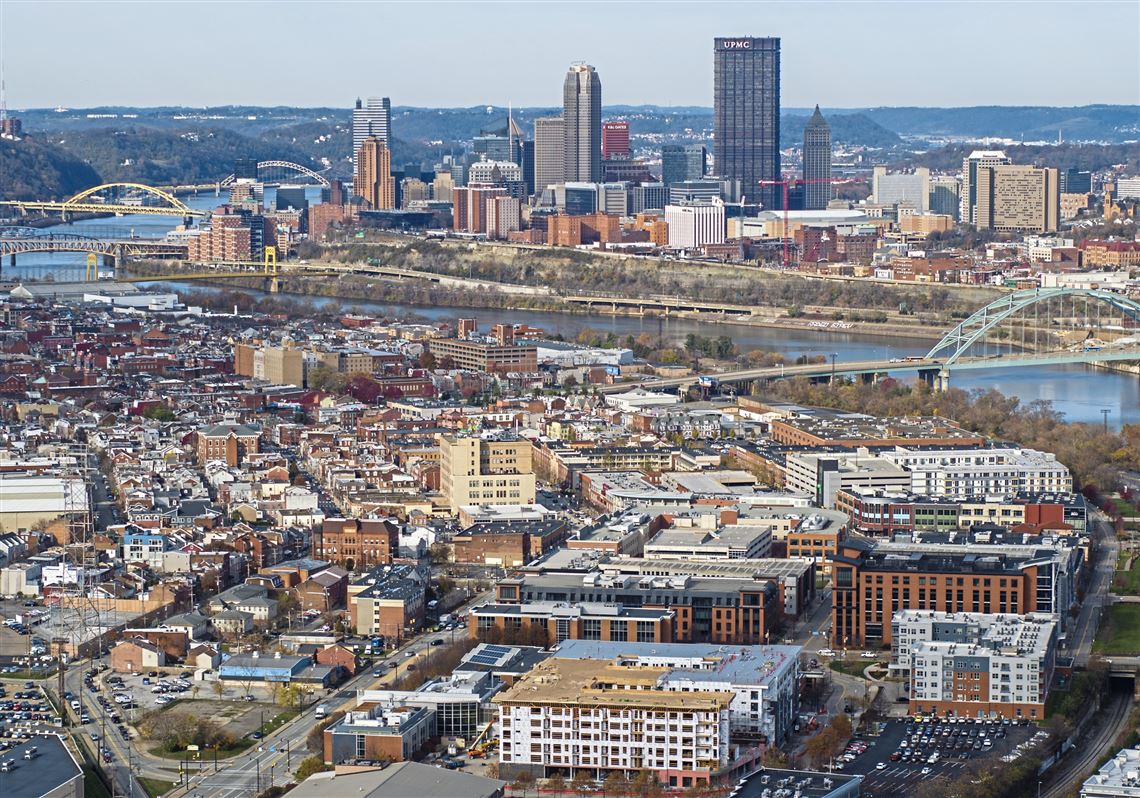
KEITH C. BURRIS: THE VIRTUE THAT MAKES PITTSBURGH A 'MOST LIVABLE' CITY
What makes city life interesting and rich? And what makes a city great, as opposed to just big? A friend of mine who loved New York City dearly, and knew it in the 1950s, told me about a man who said to him that a skyscraper ruins a sunset. My friend Bill, who came to Pittsburgh from Manhattan, thought the man daft. Bill was not one for cornfields.
Personally, I love the incredibly beautiful farmland of northwest Ohio. And the plains of Kansas and Nebraska. I confess, also, to a certain weakness for suburbs. Trees and space are pretty nice.
When my family and I lived in Connecticut, we said we lived in Hartford, but we actually lived in a leafy suburb of Hartford. And that’s mainly what I have against suburbs. If you live in a suburb of Chicago or San Diego or Boston, that’s where you really live. You don’t live in the city.
The real city
The great thing about a real city, say Pittsburgh, is that it has neighborhoods. So you can live in a parish-sized footprint, which is what most of us do, but also live in the city.
What is it that you see? Well, fewer trees, for sure. Much more grit, and maybe litter and blight. But a more pluralistic picture of humanity.
In the ’burbs, you don’t see a Taco stand next to a tattoo studio, next to a Vietnamese restaurant, next to a bookstore, next to a shoe store. What you see in the ’burbs is the strip mall and the chain restaurant.
Not a great city, Hartford, but one with texture. And I wish we had raised our kids there, at least for a time. It has all the problems of all American cities – crime, policing, race, poverty, the exodus of the middle class. It also has beauty, history, and respect for intellect.
The two pressing problems of American cities at the moment are (a) the cocktail of homelessness and mental health problems and (b) the exit of professionals from downtowns. Since Covid, and partly because of the homelessness crisis, more and more white collar types are opting to stay in the suburbs by day and even move their firms there.
Urban mayors had better wake up.
A few months ago, Arnold Schwarzenegger said that he could never become a Democrat, though he detests Trumpism. Arno said he believes in enterprise and personal responsibility. But, also, he said, not one major American city is well-governed. And almost all the mayors are Democrats. They aren’t dealing with their problems. And that’s fair.
The smaller cities’ advantage
I think smaller and mid-size cities — Toledo, Oklahoma City, Omaha, Knoxville, Des Moines — have a great opportunity. Some of these cities are already on “best of” lists and some of them used to be fodder for late night comics.
What the smaller city has going for it are two major quality-of-life factors — low cost of living (especially housing) and less time in traffic.
I am rooting for Youngstown and Flint.
Of course, a larger city is likely to have a good bus system (Pittsburgh does), and a truly great city, like Boston, has culture, high and low.
I don’t think major sports make a city great. But they add extra value. Universities and health care are what transform both the economy and the social fabric of a city. That’s how Pittsburgh “came back.”
I was born in D.C. but grew up in a small Ohio town. My first experience with plurality was the university. And then I came to Pitt for grad school and was immediately smitten. Pittsburgh was still on its back in those days, but the universities were not. They were good and getting better and better, and, of course, are now first-rate. And the city is now a center of medical science as well.
A few years after coming to Pitt, I found myself teaching urban politics, and queuing up the debate between Lewis Mumford and Jane Jacobs. Jacobs won, mostly. She got the plurality point. What makes a city wonderful is what makes a neighborhood wonderful — its unplanned, spontaneous nature.
The most livable cities
The Economist has just put out its list of most livable cities. Vienna is number one. Toronto makes the top ten. Zurich is high. Not Athens, or Madrid, both of which I love. It’s highly subjective.
What is “livable”? Cost, health care and transportation should be key factors. (Surely the cost of living is lower in Pittsburgh or Toledo than Zurich.) But certain intangibles matter as much: Quality of political leadership. Willingness to experiment. The police chief. You need one with a mind, heart, and imagination.
Finally, confidence matters. New York never stopped believing in itself, even when it was broke, crime was high, and the political system seemed broken.
Pittsburgh never stopped believing in itself. And that made all the difference.
Keith C. Burris is the former editor, vice president and editorial director of Block Newspapers: [email protected]. His previous article was “The one Republican candidate with ideas.”
2024-01-15T10:34:53Z dg43tfdfdgfd